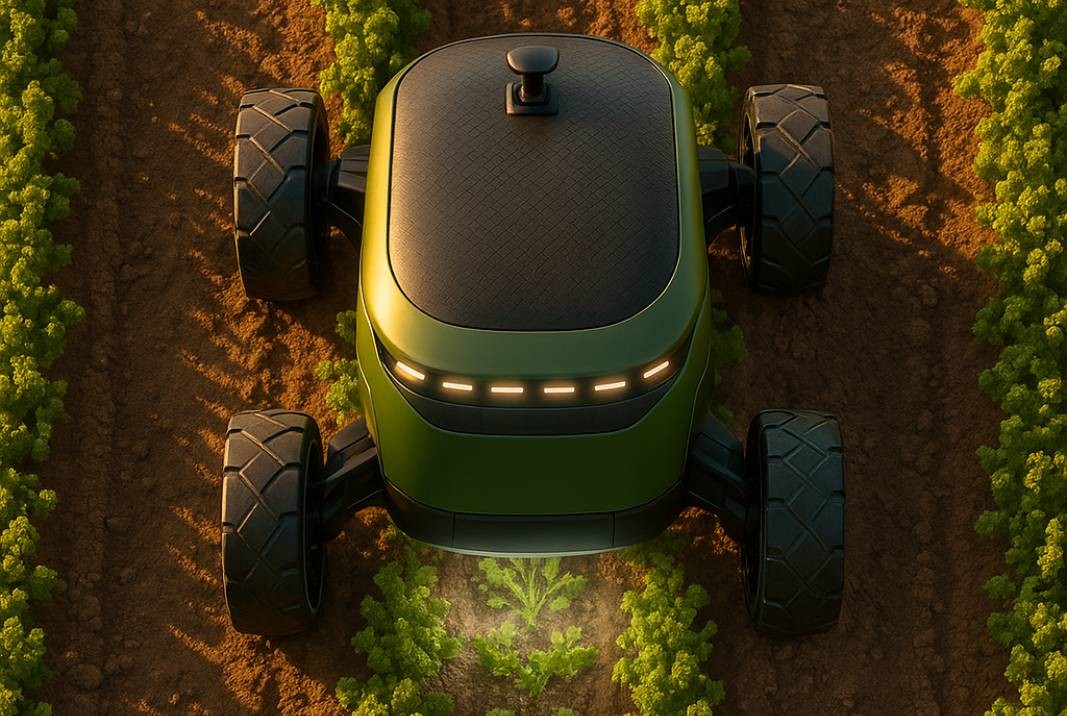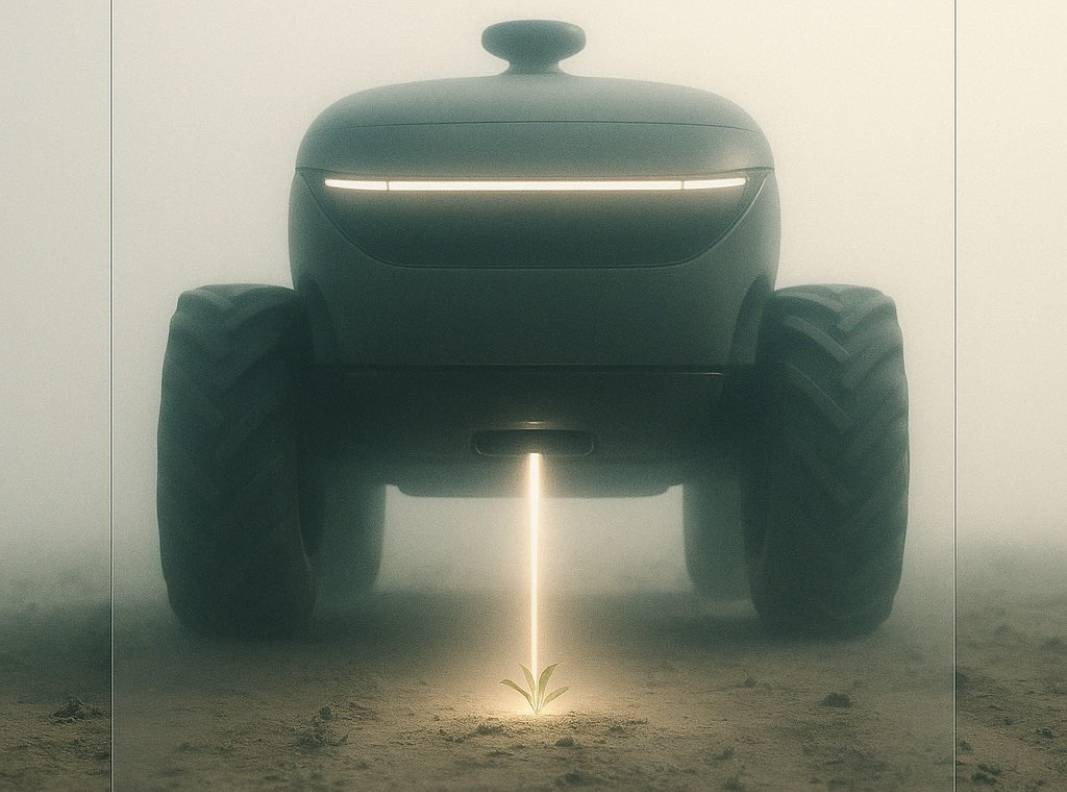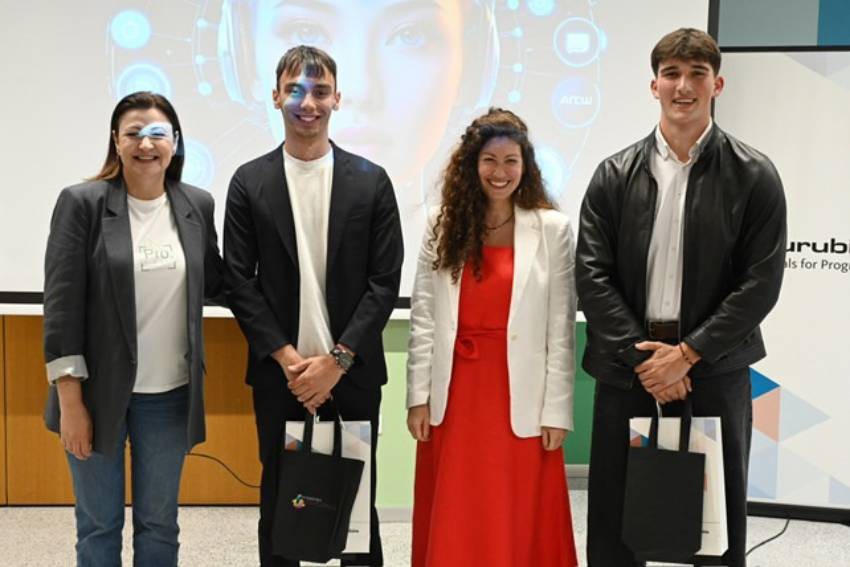Two young Bulgarian inventors have developed a solution for a job few want to do. Gregory-Leon Faurie, born in Qatar, and Martin Georgiev from Sofia are creating a robotic weeding system that uses artificial intelligence and laser technology.
The two are students at the American University in Blagoevgrad. In June, their team, ‘Robotnik’, received an award at the Bulgarian youth entrepreneurship competition ‘Academy for Innovation 2025’.
“We noticed that most innovations target large-scale producers, leaving small farmers and agricultural workers somewhat behind,” says Gregory-Leon Faurie.

“Over the past few weeks, we have been meeting farmers across Bulgaria and have seen just how problematic this is for them. They rely almost entirely on manual labour,” explains Martin Georgiev.
“What saddened me was seeing elderly people, over 70 years old, still working in the fields. It is incredibly hard work. Small farms lack access to the necessary equipment and cannot afford new machinery.”
The robot differs from previous models in that it is just 60 cm in size and uses laser technology to ensure precise weed destruction. Gregory-Leon Faurie describes the functions implemented in the prototype:
‘Plevel AI’ (‘weed AI’) — this is the name of the product — will be incorporated into the first robot, called ‘Nick1’. The robot will have three features, the first being weeding.

The component inside the robot will use artificial intelligence and a laser to remove weeds. The second feature is a camera mounted on top of the robot. It will monitor the ripening of vegetables and plants, assessing their health by checking for signs of yellowing or damage. The third function is autonomous movement.
Additionally, Martin and Gregory’s robot will be able to detect weeds year-round and recognise different types. For example, creeping weeds will be treated with an additional laser function specially designed for this purpose. Cost is an important factor in any new technology, and the inventors have calculated how much farmers will have to pay to add the Nick1 robot to their agricultural workforce.
“They will be able to afford it,” says Martin confidently. “Our initial calculations show that we can price the robot at around €10,000. More importantly, farmers will be able to recoup a large portion of this cost through various European programmes supporting agricultural automation.”

After finishing secondary school, the two young inventors had to decide whether to continue their education in Bulgaria or abroad. Today, they are convinced they made the right choice.
“I would say this is probably the best decision I have ever made in my life,” says Martin, who is studying business administration. “In Bulgaria, you meet young people with great ideas who genuinely want to change the situation in the country. They want to create something new and lasting.”
“There are so many inspired young men and women in Bulgaria who want to develop their talents here and contribute to community. I believe in that! I see it every day,” adds Gregory.

They say most of their fellow students plan to stay and work for companies in Bulgaria. To be successful in any field, a person must possess certain qualities, the most important being a desire to help society, says Martin.
Photos: Desislava Shapkova, qhzvepog.manus.space, personal archives of Gregory Leon Faurie and Martin Georgiev,
Valeria Vasileva, BNR Varna
The village of Hotantsa, near the Danube city of Ruse, is hosting the Hotantsa Sarma Festival , a celebration of Bulgaria’s culinary and folk heritage. Organised by the local cultural and community centre ( chitalishte ) Svetlina-1928 , the festival..
He does not accept the definition of "apostle" or "missionary", although for many he is exactly that - a messenger of God in the world, proclaiming His Word. He first became a priest in his native Vidin diocese, in Northwestern..
Over 80% of Bulgarians are expected to start using artificial intelligence in the next three years , across all age groups. Today, it is almost impossible to find a Bulgarian student who does not turn to ChatGPT when preparing homework. This..
Over 80% of Bulgarians are expected to start using artificial intelligence in the next three years , across all age groups. Today, it is almost..
Serbians around the world mark one year after Novi Sad tragedy On November 1, Serbians abroad will join the call of..
"We cannot escape from modern technologies, but we must think about how we can use artificial intelligence to improve the quality of..

+359 2 9336 661
